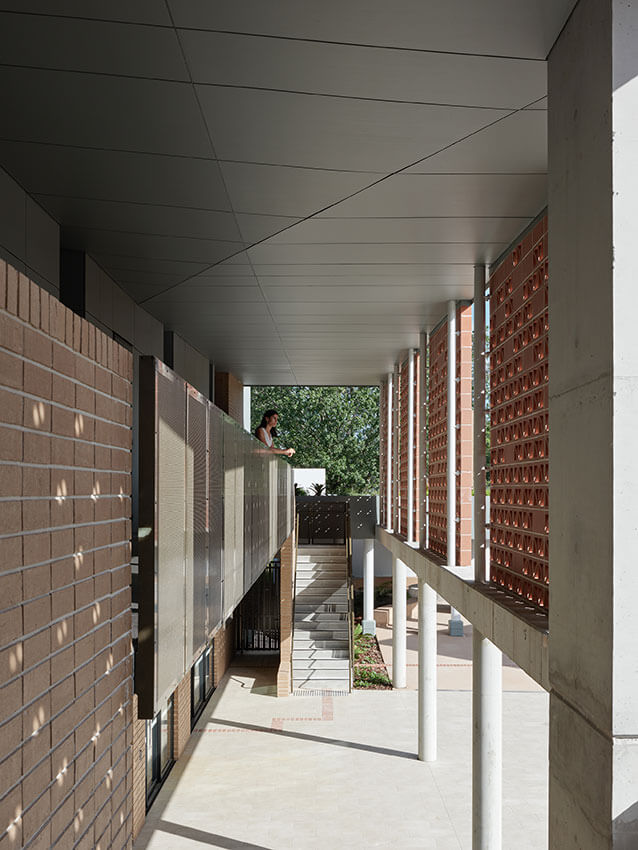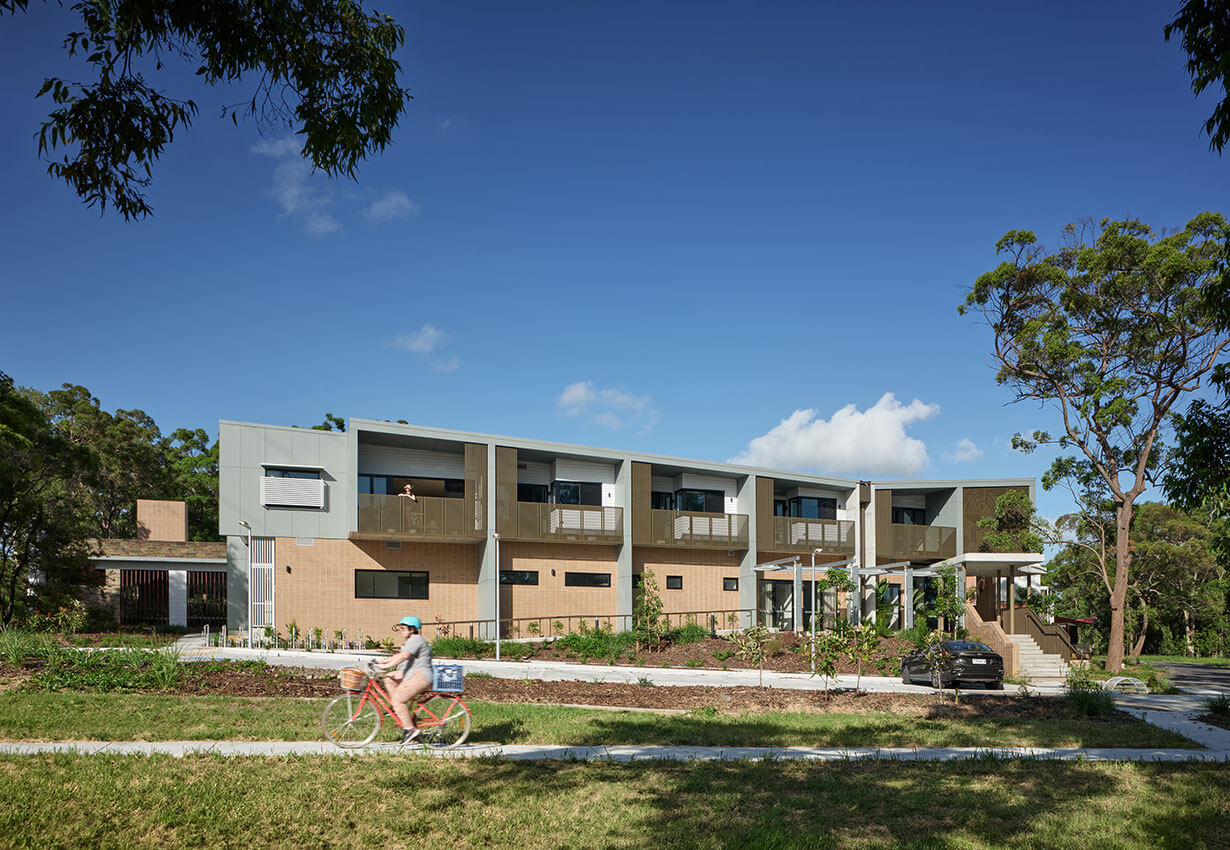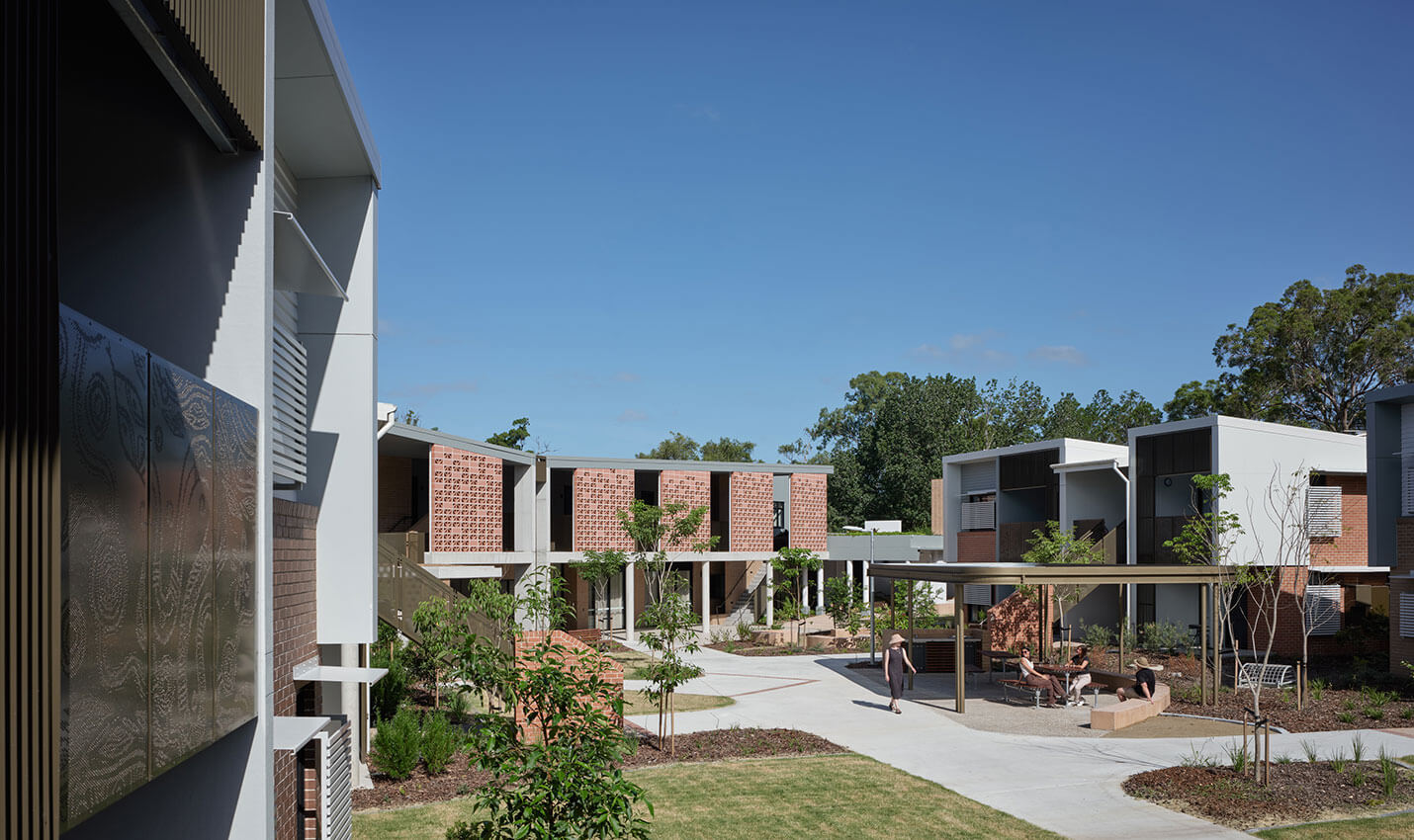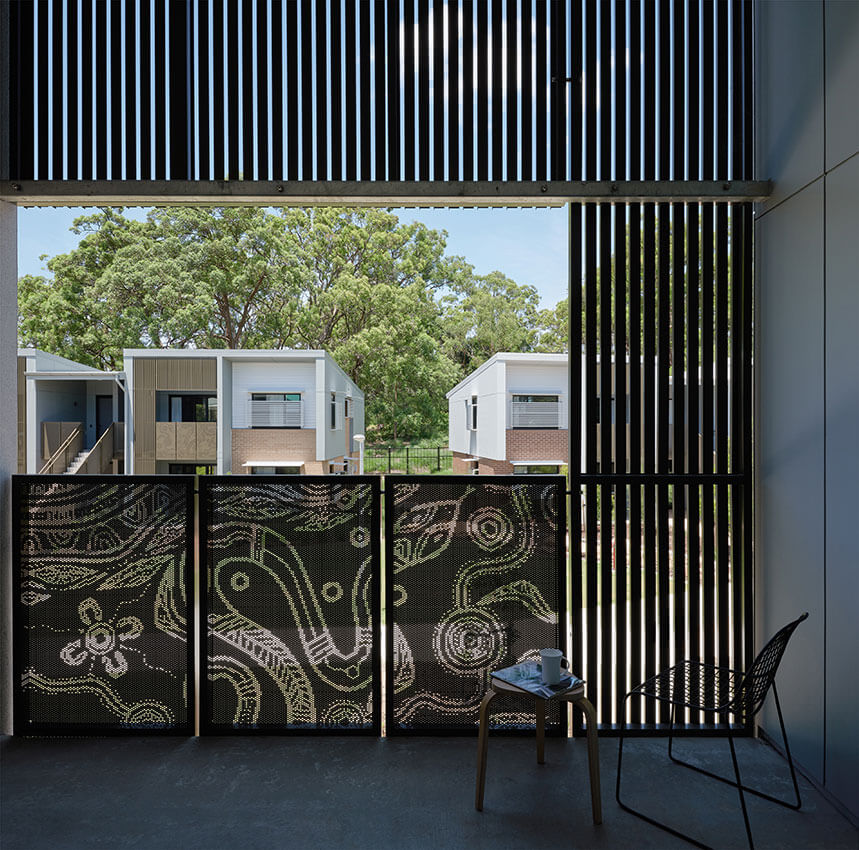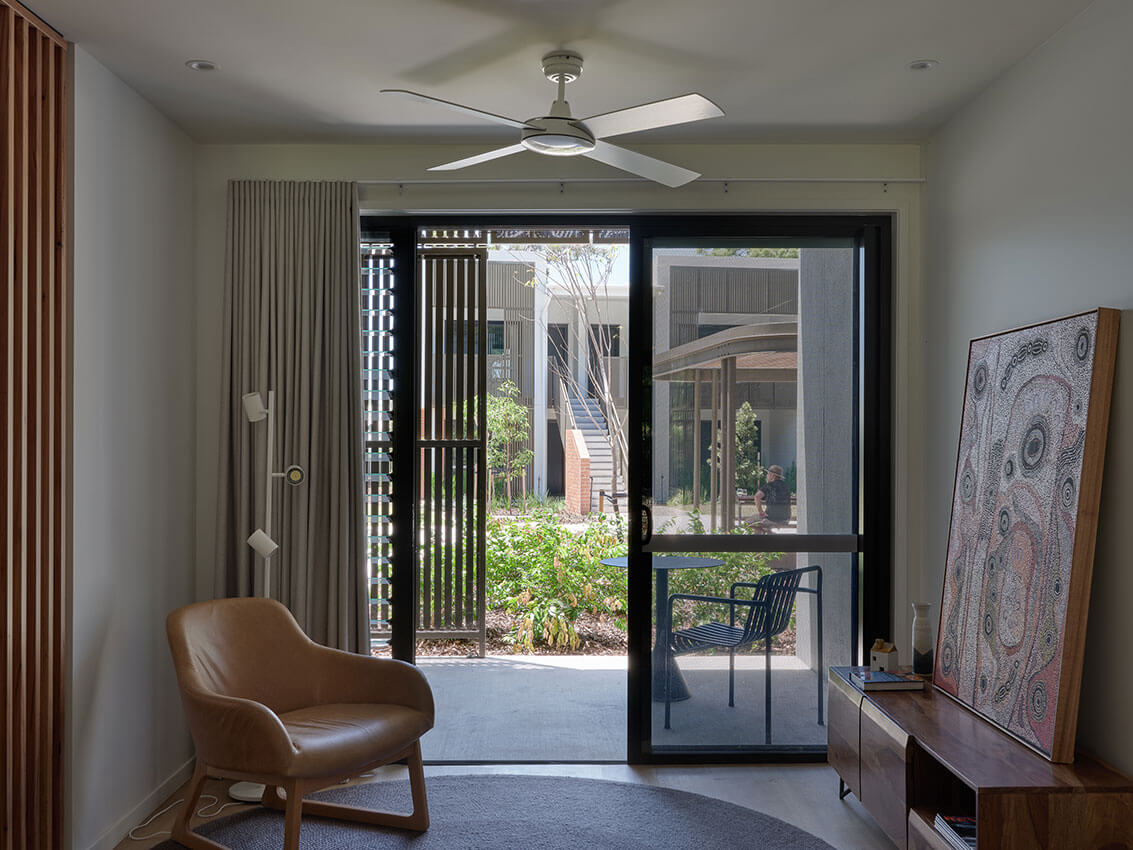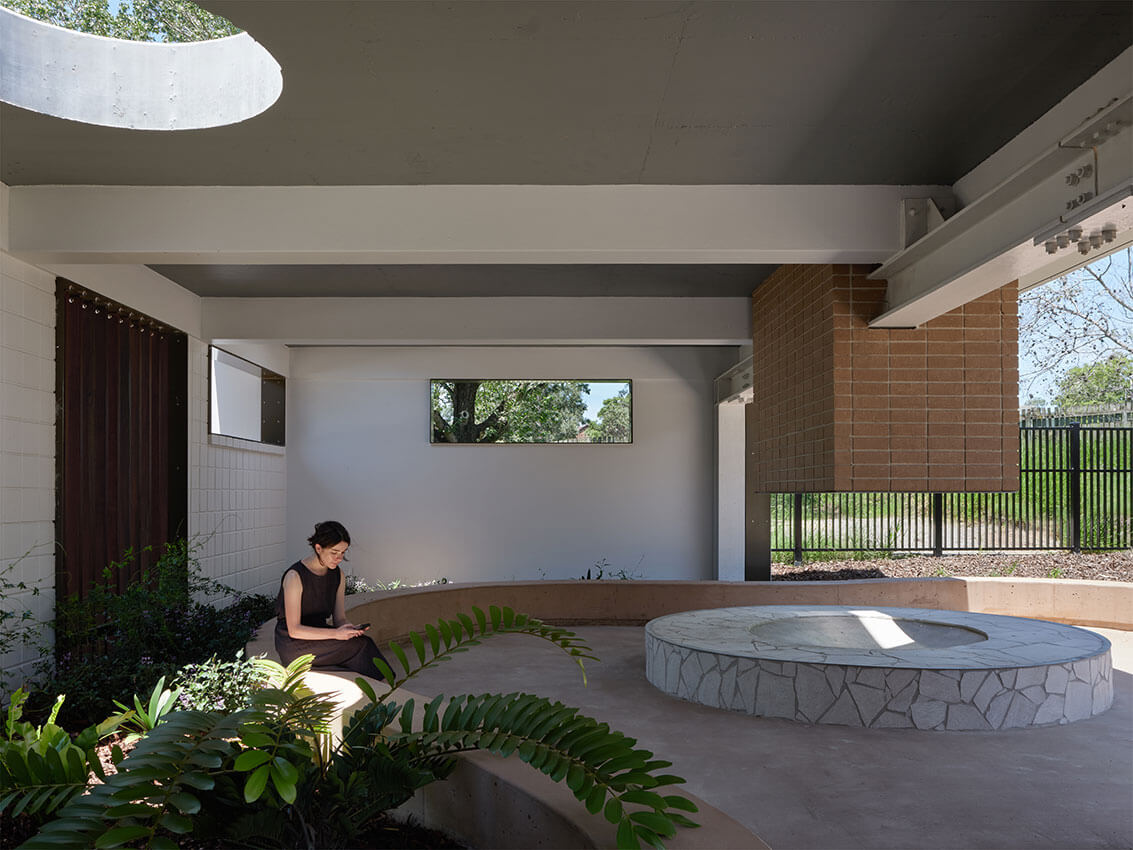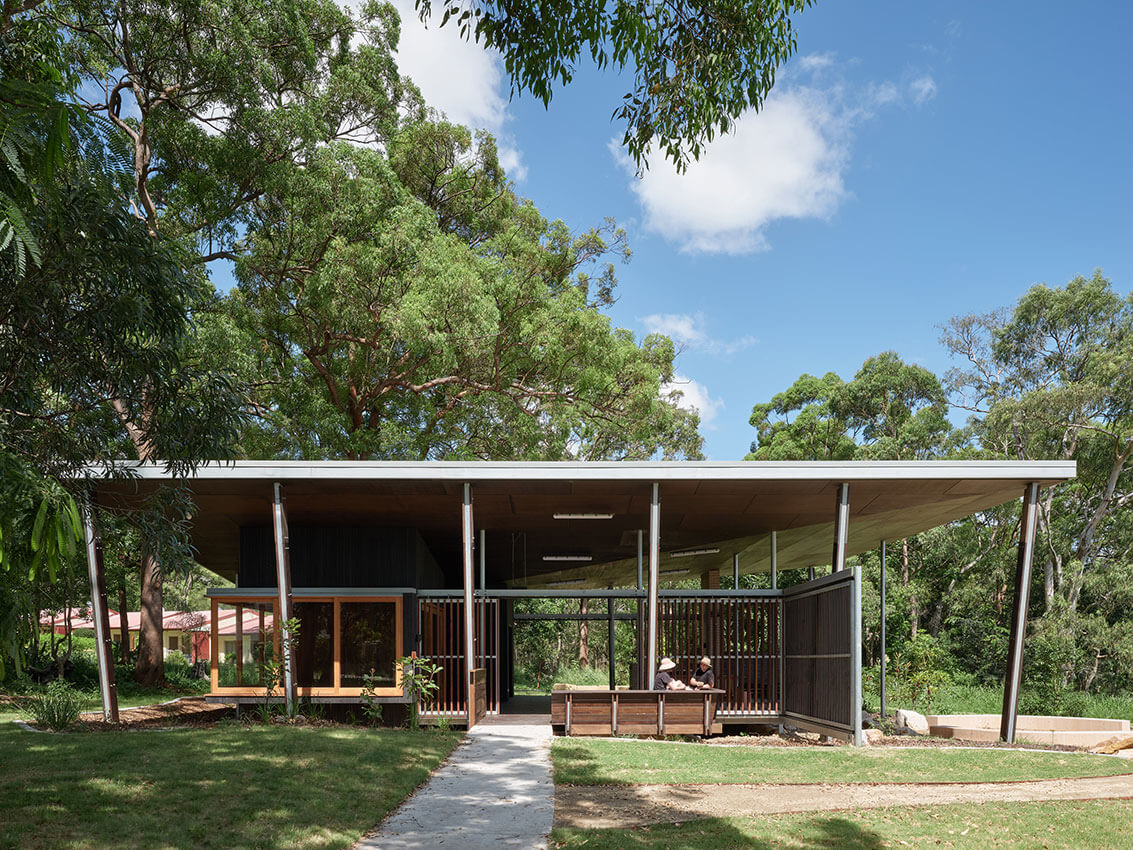Mari-Mari-Ba – Affordable Housing | Deicke Richards

2024 National Architecture Awards Program
Mari-Mari-Ba – Affordable Housing | Deicke Richards
Traditional Land Owners
Yuggera and Turrbal people
Year
Chapter
Queensland
Region
Brisbane
Category
Builder
Photographer
Media summary
Mari-Mari-Ba is a regeneration of Joyce Wilding Hostel, which served as a refuge for vulnerable First Nations women and children since the 1970s.
The development provides 33 residential units within a series of two storey buildings wrapped around a central landscaped courtyard. A community hub building at the front of the site provides support services for the residents at ground level with units above.
The Mari-Mari-Ba site has an extensive First Nations history, providing needed support services throughout its existence, both directly in terms of accommodation and support services, but also as a safe community space.
Deicke Richards was involved early in developing the initial project brief and master plan in consultation with the Department of Communities, Housing and Digital Economy and the operators, the Aboriginal & Torres Strait Islander Community Health Service (ATSICHS).
After extensive community consultation, the centre has been renamed Mari-Mari-Ba or place of the porcupine or echidna.
2024 National Awards Received
2024
Queensland Architecture Awards Accolades
Award for Residential Architecture – Multiple Housing
Queensland Jury Citation
Award for Residential Architecture – Multiple Housing
Mari-Mari Ba is a thoughtfully conceived affordable housing project that provides support for vulnerable First Nations women and children seeking emergency refuge and accommodation. The facility is designed to support cultural preferences and offer safety in a transitional residential setting, surrounded by bushland. Opportunities are provided for social connection, with play, seating, and BBQ areas spread throughout the landscape. A solid, previously abandoned masonry structure has been adaptively reused to become an intriguing and delightful outdoor room with a central hearth and floating brick chimney. Mari-Mari Ba sets a precedent for supported emergency accommodation, demonstrating that facilities of this kind can deliver quality, economic design, and meaningful, empathetic outcomes for people in need.
Australian Institute of Architects Social Impact Prize (QLD)
The Mari-Mari Ba Affordable Housing and Bushland Communal Hub is an essential addition to the redevelopment of the former Joyce Wilding Hostel. Since the 1970s, the site has served as a refuge for vulnerable First Nations women and children. The new development directly confronts the societal challenges related to domestic violence and at-risk women and children by establishing a safe, accessible, and culturally appropriate campus. This project makes a significant contribution to supporting cultural sustainability and exemplifies the positive impact architecture can have on our communities, addressing critical social issues with care and purpose.
Project Practice Team
Luke Watson, Design Architect
Peter Richards, Design Architect
John Deicke, Project Architect
Julia Comer, Graduate of Architecture
Ian Hamilton, Project Architect
Belinda Wood, Graduate of Architecture
Khai Jie Ng, Project Architect
Project Consultant and Construction Team
EDGE, Structural Engineer
EDGE, Civil Consultant
ACOR, Hydraulic Consultant
JHA, Electrical Consultant
STANTEC, Acoustic Consultant
Place Design Group, Landscape Consultant
Connect with Deicke Richards
